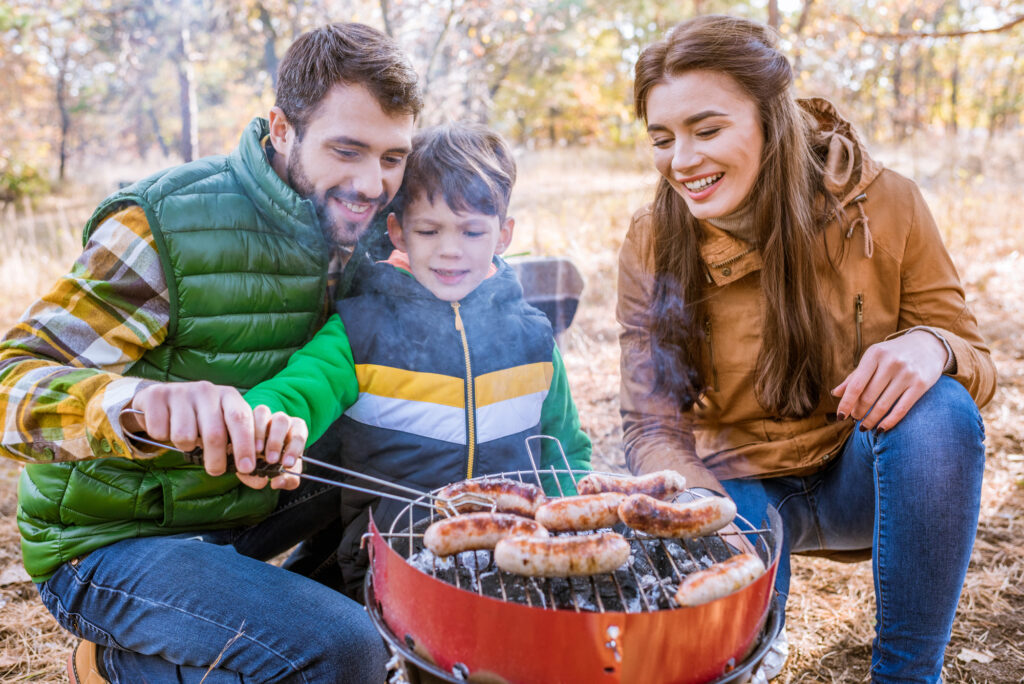Why Family Customs & Traditions Are Truly Important
Family customs and traditions are so important, they are what give us that sense of belonging and help us bond with each other. As Christians, we know the importance of building strong, loving relationships with our family members. But in today’s fast-paced world, it can be all too easy to let our busy schedules and technology-driven (distracted) lives get in the way of meaningful connections with those closest to us.

By intentionally setting aside time to come together as a family, we can build bonds that last a lifetime. Let’s explore what family customs and traditions are, why they’re important, and how Christians can incorporate their faith into these cherished family practices.
What are family customs and traditions?
Family customs and traditions are the unique practices and rituals that a family shares together. These may include special meals, holidays, birthdays, anniversaries, or family outings. In our family, my kids expect sprinkle pancakes on their birthday- that’s one of our family customs! (Check out this post about simple everyday traditions your family will love).

The activities we do regularly as a family often hold a special meaning for each family member and can be passed down from generation to generation. They can also be influenced by cultural, religious, or regional factors. By establishing and maintaining these customs and traditions, families create a shared history and a sense of belonging that strengthens their bond.
Why are family customs and traditions important?
There are many benefits to establishing and maintaining family customs and traditions. Here are just a few:
They provide a sense of identity and belonging.
Family customs and traditions help us understand where we come from and who we are. They give us a sense of belonging to a larger family unit and create a feeling of closeness and security.
They build stronger relationships.
By participating in family customs and traditions together, family members create shared experiences and memories. These shared experiences can deepen relationships and strengthen the bond between family members.

They create stability and predictability.
Most of us do this without even realizing it! Think, what does your family do each year on New Year’s Eve, or how do you celebrate your child on their birthday? Those are things that our families come to expect. In an ever-changing world, family customs and traditions provide a sense of stability and predictability. They give us something to look forward to and help us establish a routine.
They can be passed down from generation to generation.
These rituals provide an opportunity to pass down family values, stories, and traditions to future generations. They help us connect with our ancestors and preserve our family history.
How Can Christians Incorporate Their Faith Into Their Family Customs And Traditions?
For Christians, family traditions can be a powerful way to connect with God and each other. Here are some ideas for how to incorporate your faith into your family customs and traditions:
Pray together as a family.
Set aside time each day or even once a week to pray together as a family. You can also create a family prayer journal where you write down your prayers and share them with each other.
Attend church regularly as a family.
Make attending church as a family a regular part of your routine. This sets the expectation for your family that being in church is a priority for your family and it will increase the likelihood that your children will go to church regularly when they are grown.
My husband, often reminds my children that God expects us to be in church. In fact, He asks us to no forsake the assembling of ourselves! You set the example for your children, so make sure they see you seeking first God’s kingdom!

Celebrate religious holidays together.
We love holidays in our family, but holidays like Easter and Christmas hold a special significance to us as Christians. Find meaningful ways to celebrate these days that will help your family grow in faith. (Check out this post about meaningful Easter traditions and this one about Elf on the Shelf alternatives).
Serve others as a family.
Find ways to serve others as a family, such as volunteering at a local charity or participating in a mission trip together. Serving others is such a wonderful way to teach our children how to focus on others, not just their wants or needs.
Tips For Starting And Maintaining Family Customs and Traditions

If you’re looking to establish or strengthen your family customs and traditions, here are some tips to get you started:
- Involve everyone in the decision-making process. Make sure everyone in the family has a say in what customs and traditions you establish. This will help ensure that everyone feels invested in the process and committed to the traditions. If you decide as a family that family dinners are a priority, then everyone should buy-in and make it a priority to be at dinners as often as possible!
- Be consistent. Establish a regular time and place for your family customs and traditions. This will help create a sense of routine and predictability.
- Make it fun. Family customs and traditions should be enjoyable and meaningful (but they don’t have to be stressful!). Don’t be afraid to get creative and try new things!
- Be open to change. Do what works for your family! As your family tries different activities out, some things will click and others just won’t. Be willing to forget the things that just aren’t for you (even if it used to work) and hold onto the ones that make your family happy.

Remember, family customs don’t have to be stressful! Something as simple as spaghetti on Wednesday nights can be a tradition! Family customs and traditions are all about building strong, loving relationships with your family members. By intentionally setting aside time to come together as a family, you can build bonds that last a lifetime.
So, start establishing those family customs and traditions today, and watch your family grow closer together in love and faith!
